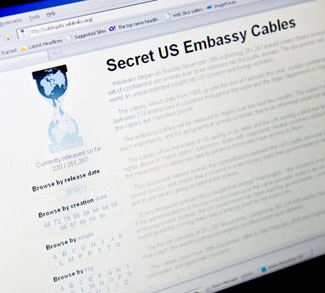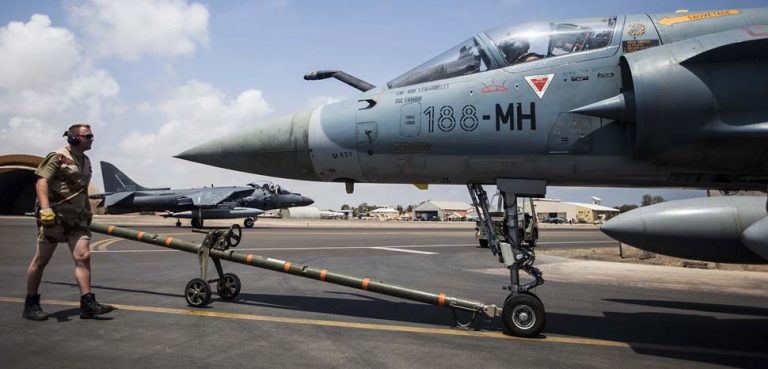Political sentiment in the United States seems to be turning against the interventions and nation-building projects that have characterized US foreign policy in recent years. The revulsion at the cost and size of government, including the cost of expensive wars in the Middle East, has been amply demonstrated during the debt ceiling drama of recent weeks.
President Obama has spoken of the need to nation-build at home rather than in Afghanistan while most Republican presidential contenders showed aversion to the Libyan operation and an unending expansive role in Afghanistan in their first primary debate in New Hampshire. Congressional grumbling is growing against further doubling-down in Afghanistan and the meandering intervention in Libya.
This is very much to the good. At times over the past two decades, US foreign policy has lost its moorings in distinguishing the vital from the desirable, with the result that conceptions of US security and humanitarian interests have become so expansive as to be seen to obligate preventive war against rogue states, coercive intervention against recalcitrant dictators, and inordinately ambitious efforts at forcibly modernizing backward societies – with baleful results. If this disorienting fever is subsiding in favor of a return to the more restrictive war-making and intervention criteria typified by the Weinberger/Powell Doctrine, then it is cause for satisfaction.
But the pendulum should not be allowed to swing too far toward an incautious retrenchment. For our problem has not been overseas commitments and interventions as such, but the kinds of interventions. The US alliance and partnership structure, what the late William Odom called America’s “liberal empire” that includes a substantial military presence and a willingness to use it in the defense of US and allied interests, remains a vital component of US security and global stability and prosperity. This system of voluntary and consensual cooperation under US leadership, particularly in the security realm, constitutes a formidable bloc defending the liberal international order.
But, in part due to poor decision-making in Washington, this system is under strain, particularly in East Asia, where the security situation has become tenser even as the region continues to become the center of the global economy. A nuclear North Korea’s violent behavior threatens South Korea and Japan, as well as US forces on the peninsula; Pyongyang’s development of a road mobile ICBM, moreover, brings into sight the day when North Korea could threaten the United States itself with nuclear attack, a prospect that will further imperil stability in the region.
More broadly, the rise of China and especially its rapid and opaque military build-up combined with its increasing assertiveness in regional disputes is troubling to the US and its allies and partners across the region. Particularly relevant to the US military presence in the western Pacific is the development of Beijing’s anti-access and area denial capabilities, including the DF-21D anti-ship ballistic missile, more capable anti-ship cruise missiles, attack submarines, attack aircraft, smart mines, torpedoes, and other assets.
While Beijing remains a constructive contributor on a range of matters, these capabilities will give China a growing power to deny the United States the ability to operate effectively in the western Pacific, and thus the potential to undermine the US-guaranteed security substructure that has defined littoral East Asia since World War II. Even if China says today it will not exploit this growing capability, who can tell what tomorrow or the next day will bring? Naturally, US efforts to build up forces in the western Pacific in response to future Chinese force improvements must be coupled with efforts to engage Beijing as a responsible stakeholder; indeed, a strengthened but appropriately restrained military posture will enable rather than detract from such engagement.
In short, the United States must increase its involvement in East Asia rather than decrease it. Simply maintaining the military balance in the western Pacific will, however, involve substantial investments to improve US capabilities. It will also require augmented contributions to the common defense by US allies that have long enjoyed low defense budgets under the US security umbrella. This will not be cheap, for these requirements cannot be met simply by incremental additions to the existing posture, but will have to include advances in air, naval, space, cyber, and other expensive high-tech capabilities. Yet such efforts are vital, for East Asia represents the economic future and its strategic developments will determine which country or countries set the international rules that shape that economic future.
Conversely, US interventions in the Middle East and, to a lesser degree, in southeastern Europe have been driven by far more ambitious and aspirational conceptions of the national interest, encompassing the proposition that failing or illiberally governed peripheral states can contribute to an instability that nurtures terrorism and impedes economic growth. Regardless of whether this proposition is true, the effort is rightly seen by the new political tide not to be worth the benefits gained. Moreover, the United States can scale (and has scaled) back nation-building plans in Iraq, Afghanistan, and the Balkans without undermining its vital interests in ensuring the free flow of oil and in preventing terrorism.
The lesson to be drawn from recent years is not, then, that the United States should scale back or shun overseas commitments as such, but rather that we must be more discriminating in making and acting upon them. A total US unwillingness to intervene would pull the rug out from under the US-led structure, leaving the international system prey to disorder at the least and at worst to chaos or dominance by others who could not be counted on to look out for US interests. We need to focus on making the right interventions, not forswearing them completely. In practice, this means a more substantial focus on East Asia and the serious security challenges there and less emphasis on the Middle East.
This is not to say that the United States should be unwilling to intervene in the Middle East. Rather, it is to say that our interventions there should be more tightly connected to concrete objectives such as protecting the free flow of oil from the region, preventing terrorist attacks against the United States and its allies, and forestalling or, if necessary,containing nuclear proliferation as opposed to the more idealistic aspirations to transform the region’s societies. These more concrete objectives can be better met by the more judicious and economical use of our military power.
More broadly, however, it means a shift in US emphasis away from the greater Middle East toward the Asia-Pacific region, which dwarfs the former in economic and military potential and in the dynamism of its societies. The Asia-Pacific region, with its hard-charging economies and growing presence on the global stage, is where the future of the international security and economic system will be set, and it is there that Washington needs to focus its attention, especially in light of rising regional security challenges faced by the United States and its allies.
In light of US budgetary pressures, including the hundreds of billions in “security” related money to be cut as part of the debt ceiling deal, it is doubly important that US security dollars be allocated to the most pressing tasks – shoring up the US position in the most important region of the world, the Asia-Pacific. It will also require restraint in expenditure on those challenges and regions that do not touch so directly on the future of US security and prosperity.
As Americans debate the proper US global role in the wake of the 2008 financial crisis and Iraq and Afghanistan, they would do well to direct their ire not at overseas commitments and intervention as such, but rather at those not tied to core US interests and the sustainment and adaptation of the “liberal empire” that we have constructed and maintained since World War II. Defenders of our important overseas links and activities should clearly distinguish their cause from the hyperactive and barely restrained approach represented by those who, unsatisfied with seeing the United States tied down in three Middle Eastern countries, seek intervention in yet more, such as Syria. Indeed, those who refuse to scale back US interventions in the Middle East or call for still more are directly contributing to the weakening of US commitments in East Asia, given strategic developments in the region and a sharply constrained budgetary environment in Washington.



